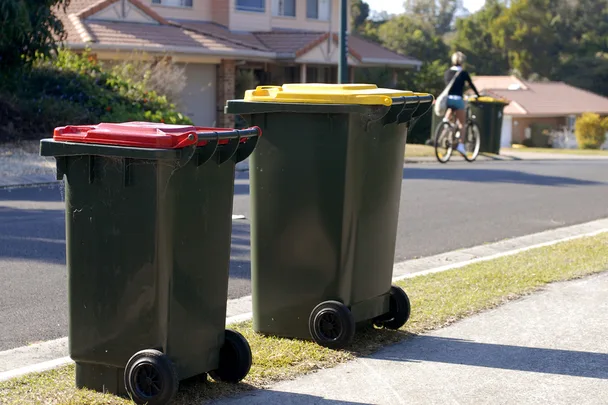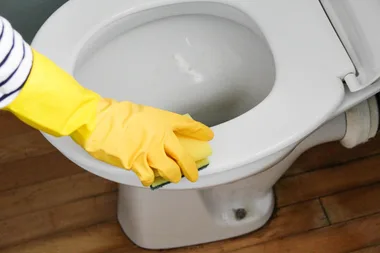Since the NSW government rolled out the Return and Earn recycling scheme in December 2017, a lot of people have been caught trawling through others’ bins, taking bottles to cash in for themselves.
It’s something that’s been happening in other states, too – in Queensland and South Australia, for example, where deposit schemes are also in place.
This ‘bin raiding’ has raised questions around whether or not it is illegal to go through someone else’s rubbish in Australia.
Is it illegal to go through someone’s rubbish in Australia?
It’s difficult to get a simple answer to the question of whether it’s illegal to rifle through someone’s rubbish bins.
One thing is for sure – it is definitely frowned upon, and may be illegal in certain places around Australia. Each council has different rules around rummaging through others’ rubbish, so it’s best to check in with your local as to the rules in your area.
One of the big issues people have with others scavenging through their rubbish is the mess they can leave behind after digging through full wheelie bins, sorting the pizza boxes from the bottles they can get money for.
Another is the issue of trespassing, with some overzealous recyclers strolling onto people’s private property to search for plastic bottles in their recycling and rubbish bins.

So, who owns the trash?
While you might think that ‘rubbish is rubbish’, it does have a legal owner – and exactly who that is depends on where the bin is located.
“The contents of someone’s bin is the legal possession of the property owner when on private land and of council when on the kerbside for collection,” the Queanbeyan-Palerang Regional Council explained in a statement.
What this means is that, legally speaking, when the bins are within your property boundary, the people living there own the contents. And while one man’s trash might be another man’s treasure, at the end of the day, going onto someone else’s land to go through their trash is trespassing.
“What I would say is that it’s not okay, particularly when bins are on private property. That’s trespass,” NSW Environment Protection Authority (EPA) chief Mark Gifford told the ABC.
When the bins are left out on bin collection night for rubbish removal, however, the contents become the property of the council, and are not fair game as some might think. When the councils collect the recycling, they can cash in on the return and earn-style schemes – and if bin hunters get in before them, it can actually cost councils tens of thousands of dollars in lost revenue.
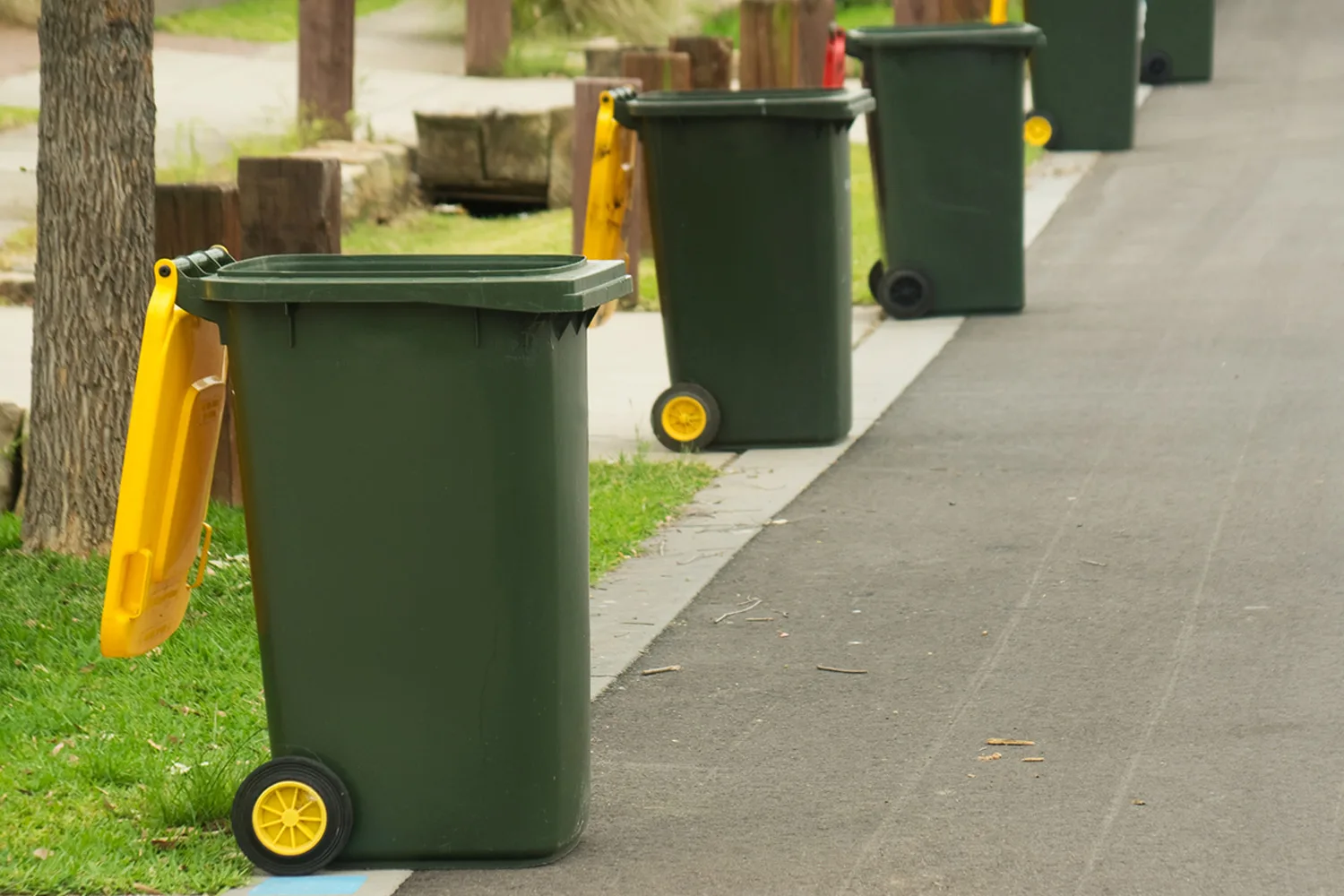
Is it illegal to take items left out for council pick-up?
Similarly to going through bins, it’s your local council that put rules in place around going through those piles of potentially usable hard rubbish on the side of the road. Some councils may have by-laws to prevent it, but in most capital cities, you can take items left on the kerb.
In Brisbane, in fact, it’s encouraged! “Residents are welcome to recycle kerbside collection goods, however, they should ensure that leftover items are stacked tidily and not creating any obstructions to the footpath or roadway,” a council spokesman told the ABC.
If you do go through a pile left roadside for council collection, be sure to leave it tidy when you’re done. It’s not a legal requirement, but it’s the right thing to do!
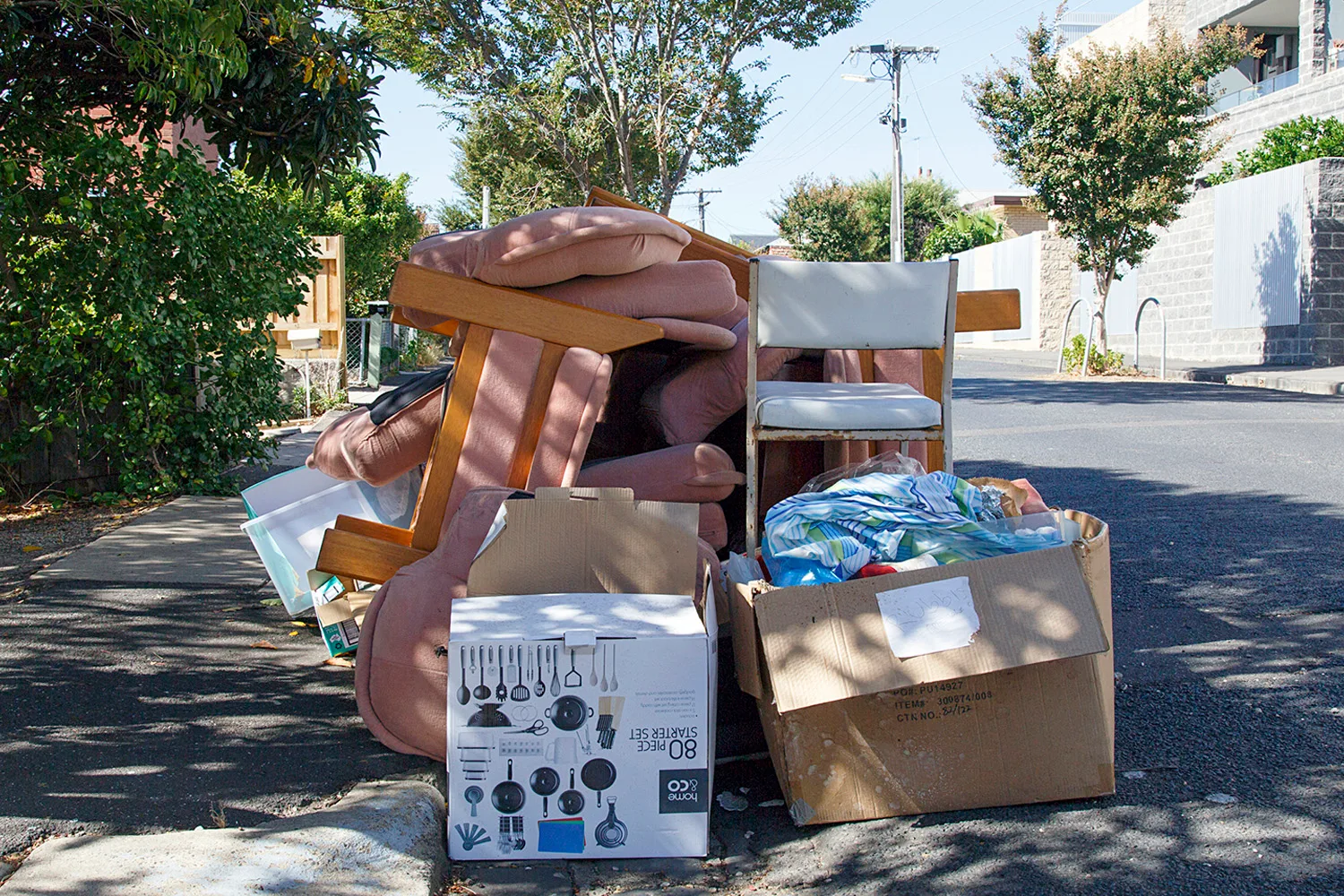
Is it illegal to put rubbish in someone else’s bin?
According to Sydney-based rubbish removal company Paul’s Rubbish Removal, putting your trash in someone else’s bin isn’t against the law – but it isn’t looked upon favourably, either.
“You cannot have your neighbour prosecuted despite the inconvenience caused,” they explain on their website. But, they add, “the habit is generally considered super shady. You might not get in trouble with the law, but it is unethical and might get you ostracised by your neighbours.”
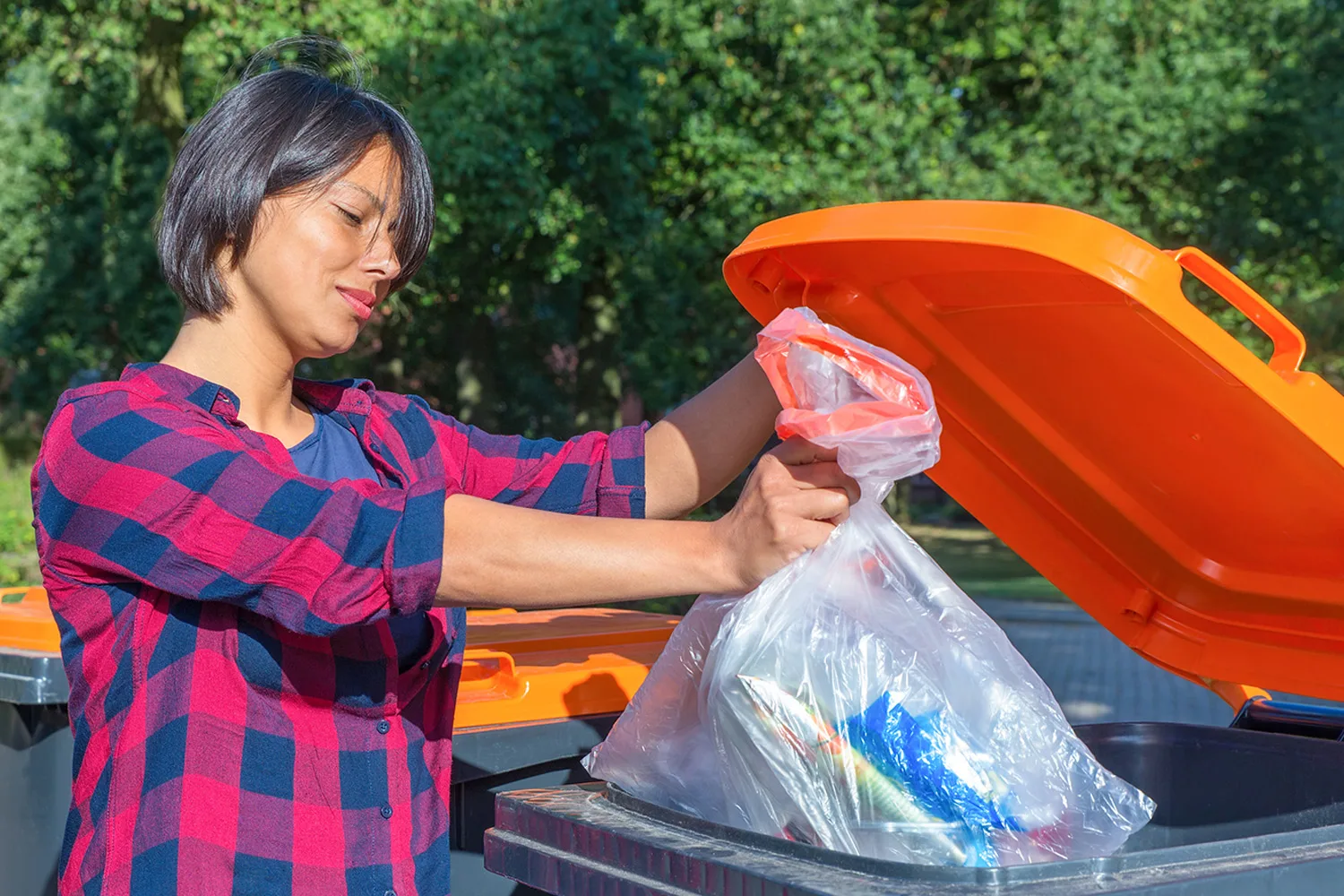
Are the rubbish laws different overseas?
In the United States, going through the trash – or ‘dumpster diving’, as it’s sometimes called – is legal unless it’s specifically prohibited by local legislation. But unlike in Australia, when a person throws something out, that item becomes public domain (according to 1988 Supreme Court Ruling California vs. Greenwood).
In the UK, it seems it’s not going through the rubbish itself that is illegal, per se; but rather who the rubbish belongs to and whose property it’s on when it’s taken. According to the BBC, someone throwing something away doesn’t necessarily mean they don’t own it. If it can be proven that the property that was thrown away had a rightful owner, it would be illegal to take it.
In India, where they face an enormous waste management challenge, it’s a very different story. The country has somewhere between 1.5 and 4 million unofficial “rag-pickers” – people who make their living collecting, sorting and segregating waste, and then trading it. It’s a completely informal sector, but one that actually helps clean up a significant proportion of the country’s 62 million tonnes of waste per year – and, as such, is not illegal.
The practice of manual scavenging, on the other hand, has been prohibited since 1993 due to both its dehumanising, discriminatory (it is a caste-based practice) and incredibly unsanitary nature.
According to the 1993 Prohibition of Employment as Manual Scavengers and their Rehabilitation Act:
“Manual scavenger” means a person engaged or employed, at the commencement of this Act or at any time thereafter, by an individual or a local authority or an agency or a contractor, for manually cleaning, carrying, disposing of, or otherwise handling in any manner, human excreta in an insanitary latrine or in an open drain or pit into which the human excreta from the insanitary latrines is disposed of, or railway track or in such other spaces or premises, as the Central Government or a State Government may notify, before the excreta fully decomposes in such manner as may be prescribed, and the expression “manual scavenging” shall be construed accordingly.
Manual scavengers rarely have any kind of protective clothing or equipment when removing raw human waste, making the practice very unsafe. However, despite the manual scavenging act, the practice is prevalent in parts of the country without proper sewerage systems or waste treatment facilities, with somewhere in the hundreds of thousands continuing work as manual scavengers.
